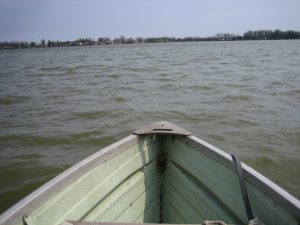 In my eighth grade English class, Mr. Sweeney asked us to write a persuasive essay and then deliver it to the rest of the class convincingly. The United States had just sent its military to the Middle East to expel the Iraqi forces that had invaded Kuwait, and that was a hot topic of discussion and controversy. As a part of these events, the head pastor at my church had recently delivered a sermon on what constitutes a "just war." It was a good sermon - contemplative, balanced, and challenging without being preachy (beyond the normal degree to which a white man adorned in robes standing in an ornate pulpit speaking down to a congregation with an amplified and booming voice is "preachy"). Because I admired this man and trusted my church and had not yet at that point in my life encountered any other theories of war, I found myself thoroughly convinced that the use of force by my government in that case was justified. I thought it was a perfect topic to use for my own persuasive speech.
In my eighth grade English class, Mr. Sweeney asked us to write a persuasive essay and then deliver it to the rest of the class convincingly. The United States had just sent its military to the Middle East to expel the Iraqi forces that had invaded Kuwait, and that was a hot topic of discussion and controversy. As a part of these events, the head pastor at my church had recently delivered a sermon on what constitutes a "just war." It was a good sermon - contemplative, balanced, and challenging without being preachy (beyond the normal degree to which a white man adorned in robes standing in an ornate pulpit speaking down to a congregation with an amplified and booming voice is "preachy"). Because I admired this man and trusted my church and had not yet at that point in my life encountered any other theories of war, I found myself thoroughly convinced that the use of force by my government in that case was justified. I thought it was a perfect topic to use for my own persuasive speech.
Continue reading "Justifying war, values training for war makers"
Category: culture
 When gas prices go up, people tend to complain that something needs to be done about the problem. Many demand action from the local or federal government, gas companies, or fellow citizens. Like Jason Sparks, whose letter in the Pal-Item yesterday read, "Why is the government not stepping in?...How are we supposed to pay the bills?...Let's shut down the country, then maybe someone would step in. We cannot afford this." Or Brad Hall, who was quoted in an article today asking, "What's going to be next?...How're people going to survive and get around?"
When gas prices go up, people tend to complain that something needs to be done about the problem. Many demand action from the local or federal government, gas companies, or fellow citizens. Like Jason Sparks, whose letter in the Pal-Item yesterday read, "Why is the government not stepping in?...How are we supposed to pay the bills?...Let's shut down the country, then maybe someone would step in. We cannot afford this." Or Brad Hall, who was quoted in an article today asking, "What's going to be next?...How're people going to survive and get around?"
That's the question, indeed.
Continue reading "Gas prices and New Minds"
It's not really useful to me when someone tells me that they know what will and won't work for my life, the people around me, my community, and so on.
That tends to scale up pretty far: it's not really useful to me when someone tells me what will and won't work for the entire population of planet Earth. There's biology and educated guessing and mathematics, and then there's fortune telling and speculation. I think one of the great wonders of life on this planet is that none of us can know, none of us can grasp the seemingly infinite variables that contribute to what happens from this moment forward.
I don't think we should be blind to data and trends and evidence and probable outcomes, and that we should not incorporate our observations about the world into our decision making. But, I also don't think the human brain was designed to cogitate on the lives and futures of the other 6.5 billion people on the earth, or the other millions of square miles that we don't inhabit. It's a fun exercise and a worthwhile one, but it perplexes me when people insist that they can discern the right way for all of us to live based on what might or might not come out of the billions of interactions happening every second. The magic of the universe seems well beyond the grasp of any one person.
 I've talked about oil prices and peak oil here in the past (on several occasions, really). You may remember that we had a panel of experts here in November to provide an outlook on the economic health of the area, and one of them said that as long as the price of oil doesn't reach $70/barrel, we'll be okay. Hmm - at the end of the week the price went up to $75 a barrel, a record and people are paying US$4/gallon in some areas. And - oh my - they're actually noticing.
I've talked about oil prices and peak oil here in the past (on several occasions, really). You may remember that we had a panel of experts here in November to provide an outlook on the economic health of the area, and one of them said that as long as the price of oil doesn't reach $70/barrel, we'll be okay. Hmm - at the end of the week the price went up to $75 a barrel, a record and people are paying US$4/gallon in some areas. And - oh my - they're actually noticing.
Perhaps its just an "Earth Day" thing, but it seems the impacts of human activities on the planet - and the resulting implications it has for our way of life - are making headlines more and more these days. Al Gore's movie about global warming is making waves around the country. Tim Flannery's disaster-is-nigh book The Weather Makers is really making the rounds in the media. President Bush is warning of a "tough summer," saying "The American people have got to understand what happens elsewhere in the world affects the price of gasoline you pay here." (Maybe a new official definition of "homeland security" is emerging?) Arnold the Terminator is weighing in, talking about the "self-inflicted wound that man has created through global warming." Even some local politicians are getting election heat for their role in narrow-minded and harmful decisions about the land in our community.
Is this a passing fad? A turning point in popular awareness of these serious issues, with unprecedented lifestyle changes and policy decisions to follow? An incremental corporate co-opting of the awareness that already exists for fun and profit? Or something else entirely? Regardless of the motives for any particular effort or project or headline, I hope that the end result is an increased appreciation for what seems to be some of the most significant (though largely self-imposed) challenges our species has faced. I hope that, as Rachel Carson put it so well, "the more clearly we can focus our attention on the wonders and realities of the universe about us, the less taste we shall have for destruction."
Last weekend I had the opportunity to head to Crawfordsville for the first session of the Indiana Energy Conference, a series of film showings, discussions, and presentations designed to help us explore our culture's relationship with energy. The conference was organized by my friend Frank Cicela, who has been a long time participant in the IshCon conferences I've been involved in putting on since 1999, and he and I have collaborated on a few other projects as well. The IEC comes out of our trip to the Peak Oil conference last fall, and so much of the content of this new event is derived from the excellent presentations and materials that we encountered back then. Frank did an excellent job putting it all together at the local community theatre, and we had at least 60 people from around the region show up ready to learn and discuss. I was running around doing lights and sound and greeting and popping popcorn so I didn't get to do a whole lot of networking myself, but I could tell there were some good conversations happening. You can see some photos from the event, as well as the amazing press coverage Frank has generated, on the success story page of the conference site. The conference continues throughout the month; make sure to stop in if you're in the area!
I'm a strong advocate of the general concept that good dialogue can work wonders for resolving conflicts, building community, and improving the world we live in. (That's dialogue instead of, say, violence, explosive angry yelling, paternalism or monarchy, snap judgments, knee-jerk fear-mongering, heated debate, or silence and avoidance.) As a result, I am constantly aware of the need for better dialogue in my own community of Richmond, Indiana, and for venues that facilitate that practice. I would go so far as to say that Richmond is, on the whole, handicapped by the poor quality of public discussion about the issues that matter to us, and that addressing this handicap is one of the opportunities most ripe for the picking in our community today.
Continue reading "The quality of public dialogue in Richmond"
I am hesitant to write more about the conversion of Hayes Arboretum land into commercial shopping space - so much has already been said. But I feel compelled to point out my sense that Richmond, as a community, is finding some good in a situation that, for a while, only seemed to have negative feelings and outcomes attached to it all around. Indeed, I am hopeful (perhaps naively so) that it may serve as a turning point in how we shape Richmond's future.
Continue reading "Oops, we ALL cut the trees down"
Well, in case you hadn't noticed, it's taking me a while longer than I'd thought it would to synthesize my notes from the Peak Oil conference into blog postings. In the interest of getting them done and published at all, this entry will be much less detailed than my others, and hopefully you can check out the DVD of the conference (not yet available) if you want to learn more. You can start with my introduction if you're just joining us.
Continue reading "Peak Oil Conference: Sunday and Conclusions"
This post summarizes the events of the second part of the second day of the Second U.S. Conference on Peak Oil and Community Solutions. You can read my introduction, my summary from Friday, and my summary from Saturday morning.
Continue reading "Peak Oil Conference: Saturday Afternoon"
This post summarizes the events of the first part of the second day of the Second U.S. Conference on Peak Oil and Community Solutions. You can read my introduction and my summary from the first day. As you'll note, there's quite a lot there, I hope it's not too discombobulated to be useful. I should note that the conference organizers are planning to produce a DVD of the various sessions held here, so if you're at all interested in seeing some of this stuff for yourself (and without my filters/bias), stay tuned to the conference website for details.
Continue reading "Peak Oil Conference: Saturday Morning"
